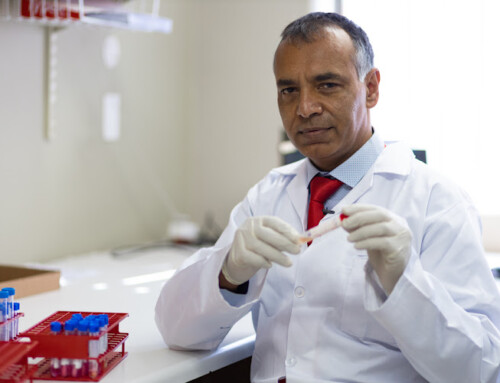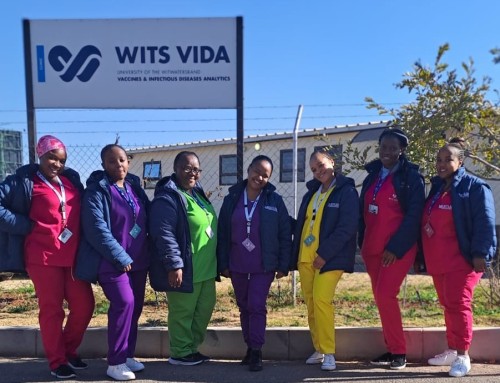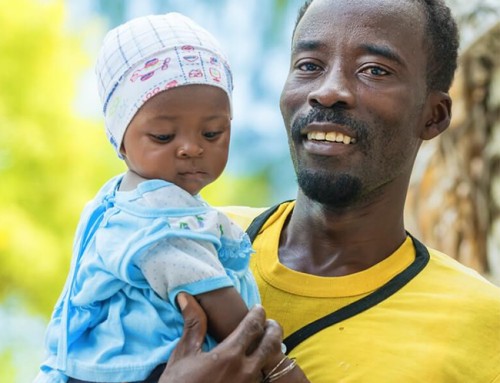New promising interventions to protect term and premature babies from deadly respiratory virus
Respiratory syncytial virus (RSV) is a major cause of lower respiratory tract infection (LRTI) and hospitalisation in infants.
Globally, approximately one-third of all hospitalisations for lower respiratory tract illness are caused by RSV. Hence, there is a serious unmet medical need for RSV protection in healthy infants born at term.
The Wits Vaccines and Infectious Diseases Analytics (Wits VIDA) research unit was the lead South African collaborator in a phase 2/3 study to investigate the efficacy and safety of drug called Nirsevimab in healthy late-preterm and term infants.
Nirsevimab is a monoclonal antibody against RSV with an extended half-life.
Monoclonal antibodies are proteins made in a laboratory that act like human antibodies in the immune system to fight a particular infection, such as RSV. They are administered as a single injection.
‘Half-life’ refers to the time it takes for the amount of a drug’s active substance to reduce by half in the body. Nirsevimab has an extended half-life of three to four months, and is able to provide protection for the entire RSV season, which usually lasts for three to four months.
Late preterm infants – that is, babies born at 32 to 37 weeks – have a higher risk of being hospitalised and dying of RSV than term infants, due to their relative physiologic and metabolic immaturity. Late preterm infants are at increased risk of various morbidities and mortality, including respiratory distress and failure, feeding difficulties, poor growth, hypoglycaemia [deficiency of glucose in the bloodstream], hyperbilirubinemia [higher-than-normal amount of bilirubin in the blood], and hypothermia [dangerously low body temperature].
The study, published in the New England Journal of Medicine, found that the drug Nirsevimab significantly protected infants against RSV disease in the Phase 3 MELODY trial, and protected high risk children in a separate study known as MEDLEY.
“This intervention provides the opportunity to protect young infants against the most common cause of hospitalisation from lower respiratory tract infections – RSV – which kills between 60 000 to 190 000 babies each year, mainly in low- and middle-income countries,” says Wits Professor of Vaccinology Shabir Madhi, Director of Wits VIDA, and a co-author of the study.
The findings showed 74.5% efficacy against medically attended lower respiratory tract infections caused by RSV in healthy infants.
Furthermore, Nirsevimab is the first potential immunisation for all infants to demonstrate sustained protection across the entire RSV season with a single dose.
“The new drug provides the opportunity of protecting infants, including high-risk groups – such as those born prematurely or with chronic lung or congenital heart disease – against the leading cause of hospitalisation for lower respiratory tract infections among infants globally,” says Madhi.
About Wits VIDA
Wits VIDA’s current focus areas include next-generation vaccines against rotavirus and TB, as well as development of novel vaccines targeted at pregnant women to protect their young infants against the leading causes of sepsis and pneumonia. Wits VIDA was and remains one of the leading research units pioneering pregnancy vaccine trials with a specific focus on RSV and GBS.
About Professor Shabir Madhi
Professor Shabir Madhi is the dean of the Faculty of Health Sciences at the University of the Witwatersrand and Director of the South African Medical Research Council Vaccines and Infectious Diseases Analytics Research Unit (Wits-VIDA). A National Research Foundation A-rated scientist and a paediatrician, Madhi’s research has focused on the epidemiology and clinical development of vaccines against pneumonia and diarrhoeal disease. These studies have informed World Health Organization recommendations on the use of the lifesaving pneumococcal conjugate vaccine and rotavirus vaccine in children, and flu vaccination of pregnant women. Madhi also co-directs African Leadership in Vaccinology Expertise (ALIVE) at Wits.
Credit: Wits University


